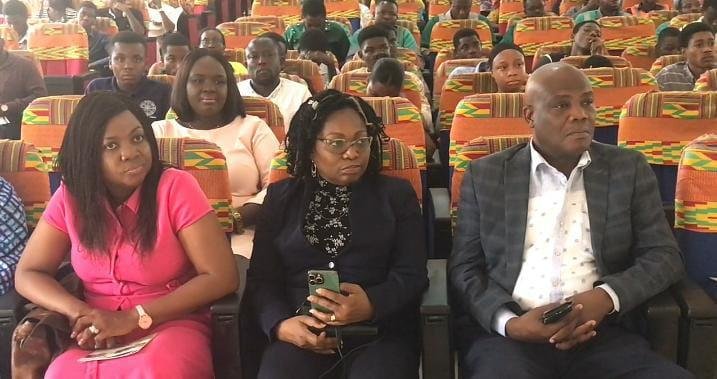ARTICLE AD
Plans are far advanced for the construction of a $450 million manganese refinery at Nsuta, in the Western Region by the Ghana Manganese Company (GMC).
The deal follows the conclusion of negotiations between the government and the majority shareholder of Ghana Manganese Company.

The Minister for Lands and Natural Resources, Mr Samuel Abu Jinapor, announced this at the Eighth University of Mines and Technology, Tarkwa (UMaT) Biennial International Mining and Minerals conference which opened at Tarkwa, in the Western Region, yesterday.
He spoke on the topic ‘Critical Minerals: Ghana’s preparedness for value addition.’
Mr Jinapor indicated that the new arrangement clearly demonstrated government’s preparedness to add value to critical minerals produced in Ghana, adding “this will result in economic diversification and job creation, and position our country to leverage on her mineral wealth to drive industrialisation and enhance our competitiveness on the global stage.”
Mr Jinapor mentioned the development of a special policy on lithium to provide effective exploitation and management, and the optimal benefits from Ghana’s green minerals.
He said a policy statement on exploitation of green minerals, presented to Parliament, had been approved, adding that, it provided for a minimum royalty rate of seven per cent for green minerals and an increase in state and Ghanaian participation in all green mineral operations, to a minimum of 30 per cent.
The policy also enhanced local content and local participation, including listing on the Ghana Stock Exchange, he explained.
Mr Jinapor stated that, the first mining lease for lithium covered a 10 per cent royalty rate and also enjoined the company to establish a chemical plant for refining the lithium.
This Lease, when ratified by Parliament, would help the government to ensure value addition to our lithium resources.
He said “our non-negotiable policy is to retain, as much as possible, the full value chain of this mineral in our country, and ensure their linkages, backward, forward and side-stream, to other sectors of the economy. Ghana must position herself, strategically, to harness the opportunities presented by the dynamic sector.”
Again, Ghana, Mr Jinapor said, must address the challenges of value addition and therefore, encouraged the academia, including UMaT, to drive research and innovation agenda.
Investment in infrastructure, technology, and human capital, he said would support a robust minerals value chain, stressing “let us, therefore, work together to unlock the full potential of our mineral wealth, ensuring prosperity for all Ghanaians.”
The conference, he suggested, must serve as a renewal of the commitment of all stakeholders in the mining industry to work together towards the realisation of Ghana as potential the hub of mineral processing and beneficiation.
Vice Chancellor of UMaT, Prof. Richard Kwasi Amankwah, urged the leadership of the university to attract industry players, harness diverse ideas and advance the course of Ghana’s mining sector, especially in seeking new investment in the green mineral economy, next year.
Held on the theme; ‘Innovations in mining and mineral processing: Expanding the frontiers of mining technology,’ the conference created a platform for participants to examine important issues in the mining industry, particularly the role of technology and innovation in building a green, sustainable and safe mining industry.

 3 months ago
27
3 months ago
27 

